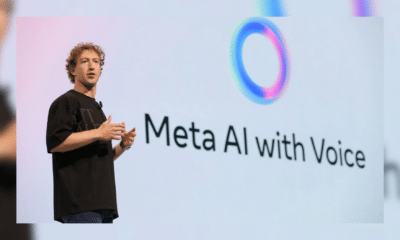Platform
Meta ‘Mistakenly’ Restricts LGBTQ Content From Teen Users – Report
Meta restricted access to LGBTQ-related hashtags and search terms on InXstagram for several months under its “sensitive content” policy, according to an investigation by User Mag. The restrictions affected teenage users by default and were reversed after media inquiries.
The investigation found that posts containing hashtags including #lesbian, #bisexual, #gay, #trans, #queer, and #nonbinary were hidden from users with active sensitive content filters. It further discovered that teen accounts, which automatically have these filters enabled, received blank pages and prompts about “sexually explicit” content when attempting to search these terms.
“These search terms and hashtags were mistakenly restricted,” a Meta spokesperson told User Mag. “It’s important to us that all communities feel safe and welcome on Meta apps, and we do not consider LGBTQ+ terms to be sensitive under our policies.”
The restrictions emerged following Meta’s implementation of expanded content controls for teenagers across Instagram, Facebook, and Threads in 2023. In September, the company made “Instagram Teen Accounts” mandatory for users under 18, requiring parental permission to disable the setting.
GLAAD, an LGBTQ media advocacy organization, has expressed concern about the impact. “Meta categorizing LGBTQ hashtags as ‘sensitive content’ is an alarming example of censorship that should concern everyone,” Leanna Garfield, GLAAD’s social media safety program manager, told User Mag.
Content creators and teenagers attempted to raise awareness about the issue, but their posts gained limited traction. LGBTQ creators have previously reported experiencing shadow bans and having their content marked as “non-recommendable.” Meta has stated it is investigating to determine when the search restrictions began.
“A responsible and inclusive company would not build an algorithm that classifies some LGBTQ hashtags as ‘sensitive content,’ hiding helpful and age-appropriate content from young people by default,” a GLAAD spokesperson told The Advocate. “Regardless of if this was an unintended error, Meta should… test significant product updates before launch.”
The investigation revealed that while LGBTQ content faced restrictions, heterosexual content and content featuring straight cisgender couples remained accessible. Some interviewed teens reported difficulty finding LGBTQ peers through Instagram, though many were unaware of the specific content restrictions.
A recent study by Hopelab reveals that LGBTQ+ youth are forming strong parasocial relationships with smaller social media content creators, potentially impacting their mental health and well-being.





















